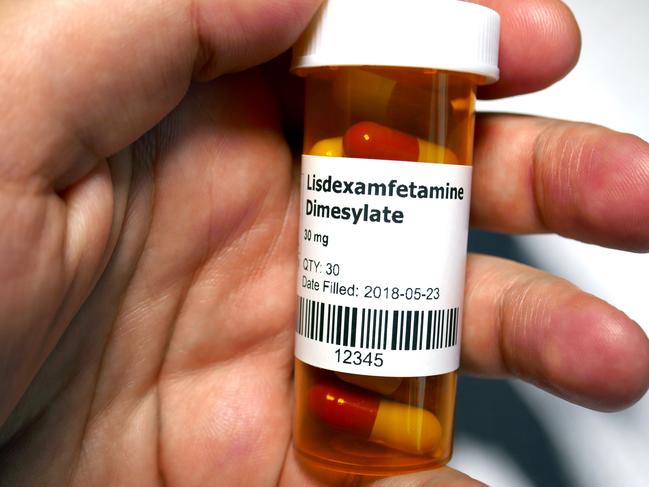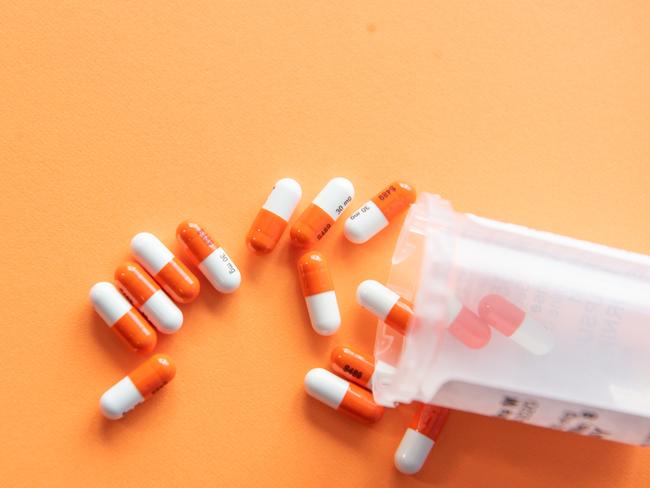More teens are turning to ‘smart drugs’ to help them study. They don’t work
More Melburnians are illegally obtaining $5 ADHD pills in an attempt to help them study – but the so-called “smart drugs” are having the opposite effect.

News
Don't miss out on the headlines from News. Followed categories will be added to My News.
Illegally-obtained ADHD medications, dubbed “smart drugs” by students and office workers, are becoming cheaper and easier to purchase.
More Melburnians are using the drugs, commonly known as Ritalin, Modavigil and Vyvanse, without a prescription.
This is despite experts warning the pharmaceutical stimulants – often used to treat the attention deficit hyperactivity disorders and narcolepsy – actually make it harder for people without ADHD to perform complex tasks.
University and school students as well as people from the most advantaged socio-economic areas are the worst culprits, buying into the “myth” that ADHD drugs improve memory, alertness and concentration.
A 5mg tablet costs on average $5 in 2024, a report released last week by the National Drug and Alcohol Research Centre (NDARC) revealed, compared to $6 in 2023.
A 10mg tablet also costs $5 – down from $9 in 2023 and a 20mg tablet has a median price of $8, decreasing from $10 in 2023.
Nearly half of participants involved in the study conceded it was “very easy” to obtain the drugs illegally, followed by a further one third who said it was “easy”.

NDARC research fellow Dr Rachel Sutherland said the drugs are also being used to “experiment or get high”.
“As with all stimulants, these substances increase activity of the sympathetic nervous system, which controls various functions in the body during times of stress,” she said.
“This in turn increases heart rate, blood pressure and breathing rate.
“These changes can cause acute cardiac events, such as arrhythmias, or irregular heartbeat, and with repeated use of high doses, chronic changes in the heart’s functioning.”
The Alcohol and Drug Foundation’s policy and engagement manager Robert Taylor said the stimulants can also cause dependence and have a range of negative side effects including “comedowns”, as well as fatigue, difficulty concentrating, low mood and anxiety.
Dr Sutherland said some ADHD drugs are also “long-acting” – released into the body over a day – increasing the risk of premature redosing.
She said there has been a large increase in the prescribing of ADHD medications in recent years, adding to the potential for these substances to be diverted to illicit drug markets.

Professor Dave Coghill from the University of Melbourne was among a team of researchers at the university that found the stimulants don’t work as “study drugs”.
“What they do is they make it look as if people are working harder, they might increase their motivation. But (we found) they actually made people less productive,” he said.
“They’re also not efficient as party drugs. They do make you stay awake, but they’re not actually effective in giving people a high either.”
The NDARC report, which involved nearly 800 participants who regularly use illicit stimulants, revealed 60 per cent of the Melbourne sample reported using the drugs illegally in the past six months.
This was a 13 per cent jump alone in the past year, up from 47 per cent when the same drug trend study was carried out in 2023.
It is also a doubling of figures in the past 10 years, when Melbourne recorded 30 per cent in 2014 and a 566 per cent increase since monitoring began in 2007 (9 per cent).
This year’s report showed Melbourne was higher than Sydney (46 per cent), Adelaide (50 per cent) and Canberra (56 per cent).

More than five per cent, or 1.2 million Australians, used ADHD drugs for non‑medical purposes, the most recent 2022-2023 National Drug Strategy Household Survey found.
About 400,000 people had taken them in the past 12 months, making illicit use higher than inhalants (such as happy gas, nangs, petrol), ketamine and methamphetamine.
People in their 20s were the most likely to have used the drugs illegally in the past 12 months, and males were more likely to have done so than females.
Those living in the most advantaged socio-economic areas were 2.7 times as likely to have used them as people in the most disadvantaged socio-economic areas.
Prof Coghill said more needed to be done to educate students on the risks of taking pharmaceutical stimulants without a prescription.
“We should be talking about the fact that the benefits are not what they might think they are,” he said.
“You don’t change young people’s relationships with drugs by just smacking them on the wrists, you need to help them make informed decisions and understand what some of the risks are.”
More Coverage
Originally published as More teens are turning to ‘smart drugs’ to help them study. They don’t work




